SUMMARY
This is AI generated summarization, which may have errors. For context, always refer to the full article.
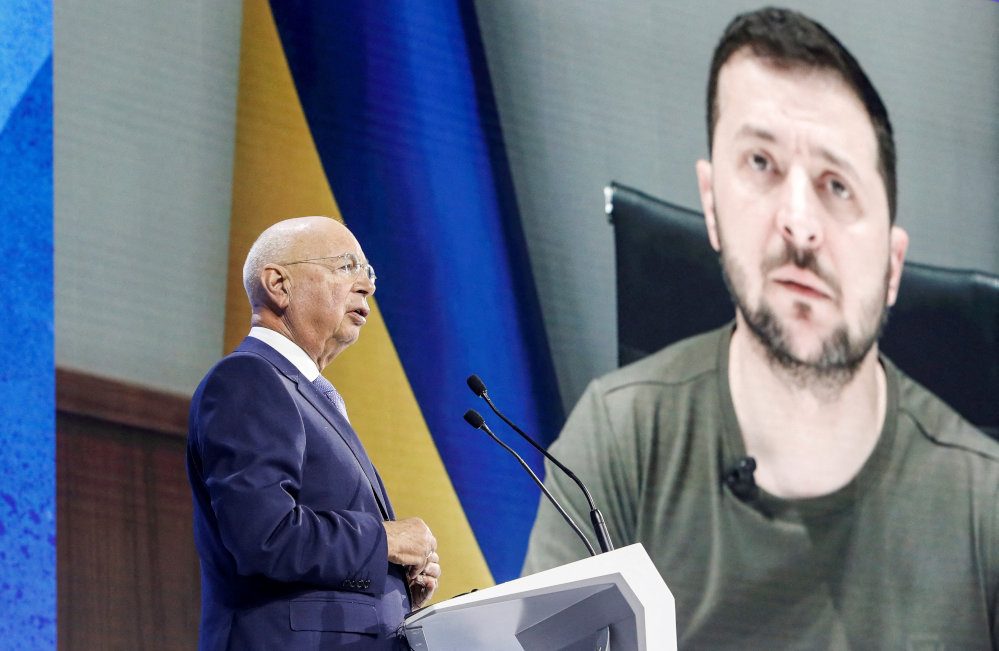
US President Joe Biden said on Tuesday, May 24, that the crisis in Ukraine was a global issue which heightened the importance of maintaining international order, territorial integrity and sovereignty.
Biden’s comments delivered at the opening of the “Quad” meeting of Indo-Pacific leaders in Tokyo come a day after he broke with convention and volunteered US military support for Taiwan, the self-governed island claimed by China. Read full story
“This is more than just a European issue. It’s a global issue,” Biden said of the Ukraine situation at the Quad meeting of the United States, Japan, India and Australia.
Biden stressed Washington would stand with its allies and push for a free and open Indo-Pacific region.
“International law, human rights must always be defended regardless of where they’re violated in the world,” he said.
Ukrainian President Volodymyr Zelenskiy told global business leaders in Davos on Monday that the world must increase sanctions against Russia to deter other countries from using “brute force” to achieve their aims.
The European Union will likely agree on an embargo on Russian oil imports “within days”, its biggest member Germany has said, as Moscow said its economic ties with China would grow amid its isolation by the West over the Ukraine conflict.
Many of the EU’s 27 member states are heavily reliant on Russian energy, prompting criticism from Kyiv that the bloc has not moved quickly enough to halt supplies.
Hungary is demanding energy investment before it agrees to an embargo, clashing with EU states pushing for swift approval. The EU has offered up to 2 billion euros ($2.14 billion) to central and eastern nations lacking non-Russian supply.
“We will reach a breakthrough within days,” Germany’s economy minister, Robert Habeck, told broadcaster ZDF.
Russian Foreign Minister Sergei Lavrov said the Kremlin would focus on developing ties with China as economic links with the United States and Europe were cut.
“If they (the West) want to offer something in terms of resuming relations, then we will seriously consider whether we will need it or not,” he said in a speech, according to a transcript on the foreign ministry’s website.
“Now that the West has taken a ‘dictator’s position’, our economic ties with China will grow even faster.”
Russia’s three-month long invasion, the biggest attack on a European state since 1945, has seen over 6.5 million people flee abroad, turned entire cities into rubble, and prompted the unprecedented imposition of Western sanctions on Russia.
Zelenskiy on Monday called on Ukraine’s allies to pressure Moscow into a prisoner exchange. Read full story
“We do not need the Russian servicemen, we only need ours,” Zelenskiy said. “We are ready for an exchange even tomorrow.”
Donbas fighting
Russia sent thousands of troops into Ukraine on February 24 for what it calls a “special military operation” to demilitarize its neighbor and root out dangerous nationalists – claims dismissed by Kyiv and Western countries as false pretexts for a land grab.
Having captured the port city of Mariupol in southeastern Ukraine after a months-long siege, Russian forces now control a largely unbroken swathe of the east and south.
They are trying to encircle Ukrainian forces and fully capture the Luhansk and Donetsk provinces that make up the eastern Donbas region, where Moscow backs separatist forces.
A total of 12,500 Russians were trying to seize Luhansk, the region’s governor, Serhiy Gaidai, said on Telegram.
Four people were killed when a residential building was shelled in the city of Sievierodonetsk, Gaidai added.
“The intensity of fire on Sievierodonetsk has increased by multiple times, they are simply destroying the city,” he said on TV, adding there were about 15,000 people in the city and the Ukrainian military remains in control of it.
Sievierodonetsk lies in the eastern-most part of a Ukrainian-held pocket of the Donbas and one of the last areas of Luhansk region still outside Russia’s grip.
Donetsk regional governor Pavlo Kyrylenko told local television that shelling was occurring along the front line, with the coal mining town of Avdiivka being hit round the clock.
Russian forces fired on 38 communities in Donetsk and Luhansk on Monday, killing seven and injuring six, Ukraine’s Joint Forces Task Force military command said.
Reuters was not immediately able to verify the information.
Zelenskiy revealed Ukraine’s worst military losses from a single attack of the war, saying 87 people had been killed last week when Russian forces struck a barracks at a training base in the north.
Denmark’s pledge to send Harpoon anti-ship missiles and a launcher to Ukraine, announced by the United States on Monday, is the first sign since the Russian invasion that Kyiv will receive US-made weapons that significantly extend its striking range.
The Harpoons, made by Boeing, could be used to push the Russian navy away from Ukraine’s Black Sea ports, allowing exports of grain and other agricultural products to resume.
In the first of what could be many war crimes trials arising from the invasion, a court in Kyiv sentenced a young Russian tank commander to life in prison for killing an unarmed civilian.
Ukraine is investigating over 13,000 alleged Russian war crimes, the website of its prosecutor general shows.
Russia has denied targeting civilians or involvement in war crimes.
At a cemetery outside Mariupol, treading through long rows of fresh graves and makeshift wooden crosses, Natalya Voloshina, who lost her 28-year-old son in the fight for the city, said many of Mariupol’s dead had no one left to honour their memory.
“Who will bury them? Who will put up a plaque?” she asked.
“They have no family.” – Rappler.com
Add a comment
How does this make you feel?
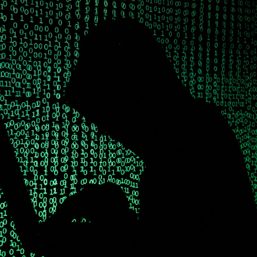
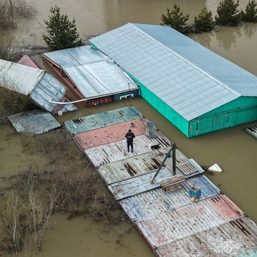

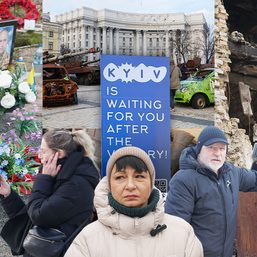
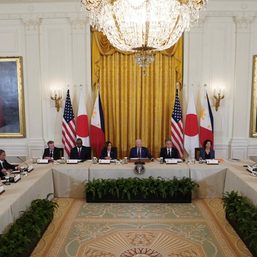
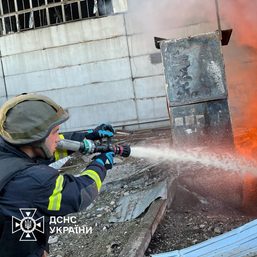
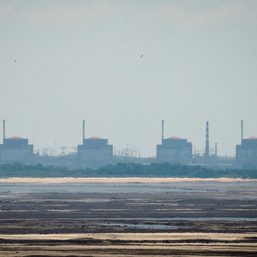
There are no comments yet. Add your comment to start the conversation.